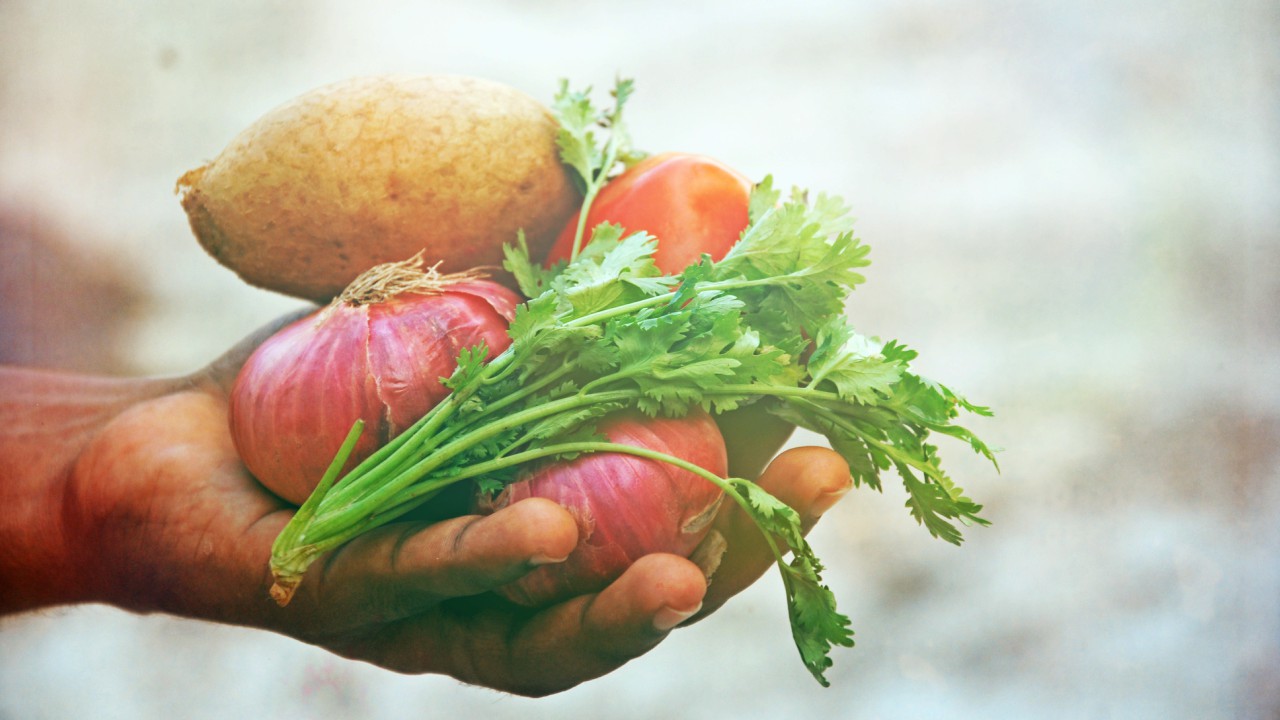 Via Pexels, Edited by Erin Kennedy
Via Pexels, Edited by Erin Kennedy
I dabbled in vegetarianism for years. I picked it up when it was convenient but threw in the towel when I smelled bacon. This is not surprising behavior, considering I did not reflect on my purpose behind this lifestyle.
Things changed, not all at once, but in stages. I met people who started to make me think differently. I began to consider my long-term health and the role that a plant-based diet might have on my longevity. I even craved vegetables because I knew how to prepare them.
My meat-eating partner started to choose plant-based meals over his former hangout, the steakhouse. Apparently, it was not only possible to change; it was possible to love the new lifestyle more than we imagined.
I know that vegetarianism is not for everyone, but we can all agree in the benefits of more plants in all of our diets.
Here are some of the ways my partner and I began to make the transition. These ideas may help you to edge towards veggie life slowly, without feeling deprived (and maybe, maybe even liking it):
1) Do what you can.
I used to be “all or nothing” girl, not seeing the point of the in-between. Now I see that there is benefit in the in the grey areas.
If your friends are raving about kale, and you don’t get what the fuss is about, guess what? There are other vegetables. Try a meatless Monday and if it goes well, you can have other meatless days of the week. It doesn’t have to be all at once.
2) Learn new ways to prepare food.
If you have gotten into the habit of a meat and potatoes diet, you may feel that there is only one way to get food on the table in a hurry. However, there are so many amazing plant-based recipes that can be made in advance that are just as easy, if not easier than what you are already making in the kitchen.
Follow plant-based blogs, buy some cookbooks, or even cheat a little with a meal kit delivery service. Maybe polenta with stewed mushrooms will become your new go-to meal. Deliciousness is the easiest way to stay on the plant-based track.
3) Get spicy.
I lived in Thailand for a couple of months and it didn’t take me long to stop saying, “I like spicy food.” (I quickly realized it is all relative.) Not everyone likes hot sauce, but vegetables (and fruits) shine with a little spice.
Refresh your spice cabinet. Try pumpkin pie spice in your oatmeal or coffee, and a little cumin in your bean chili. Roasted potatoes are even better with a little sprinkle of something, especially if that something is a flavor that makes your mouth water.
4) Educate yourself.
While veganism used to be a hippie concept, now vegan menu items are sprouting in the most unlikely places.
Ask a vegetarian friend of yours why they decided to go that route. Watch a Netflix documentary on the subject, such as “Vegucated” or “Forks Over Knives,” or read a book that isn’t too preachy like “The Omnivore’s Dilemma” or “The Humane Economy.”
Everyone has a cause that will help them stick to a goal. Whether it’s animals, the environment or your own health, knowing this will help you to stay with a new way of eating.
5) Ask yourself questions.
Making any shift in your diet requires a certain amount of mindfulness. Even a small change requires checking in: Do you have the same amount of energy? How is your digestion?
Notice how your body responds to more plants and tweak as necessary rather than giving up. Many people find that they feel great with more plants, which is a great incentive to continue.
Edited by Jody Smith






Add a Comment4 Comments
I started eating a plant-based diet beginning 2017 and I have to say that there have been some challenges but for the most part I am loving the entire change. My wife has been a vegetarian for most of our 37 years together but I have always loved both vegetarian food and animal food products and I do the cooking in the house. My wife's friends told her that they are jealous that she is married to a vegan cook. I didn't see that coming.
I have trouble calling myself a vegan, although it is an accurate description, I like the description plant-based diet better because it ends all question from anyone that asks me about my food intake. It is just much more simple to say that if it comes from an animal, I don't eat it, and if it comes from a plant, I eat as much of it as I want to.
I am not a purist in that if I order black beans in a Mexican restaurant and forget to say no cheese or even if I say no cheese and the beans come sprinkled with cheese anyway, I simply scrape off the cheese best I can. I used to be a huge milk drinker. Like a gallon in 2-3 days wasn't uncommon. I don't miss milk, I don't miss meat, I don't miss eggs, I don't miss fish or sea food. I MISS CHEESE.
June 16, 2018 - 9:47amThis Comment
Hi,
Sometimes it's better to eat something you love (in moderation) that to deny yourself. That's what I do with cheese (and daily). A few cubes of cheese on a salad add some protein and for me, is more satisfying.
Helena
June 16, 2018 - 10:24amThis Comment
Great article. I love everything vegetarian. Eating a plant-based diet is not only good for our health but also for the environment. I think everyone should at least go meat free 2 days a week.
Great read! Thanks for sharing.
September 6, 2017 - 6:26pmThis Comment
This is a very sensible approach. Anyone can benefit from this, even nonvegiarians that want to incorporate a few more meatless meals a week into their diet for health reasons. As you say, it need not be all or nothing. Good advice!
Best,
December 29, 2016 - 9:48pmHelena
This Comment